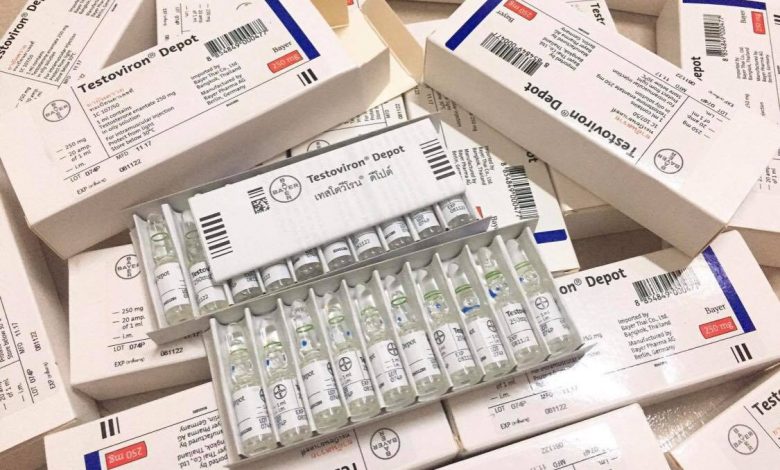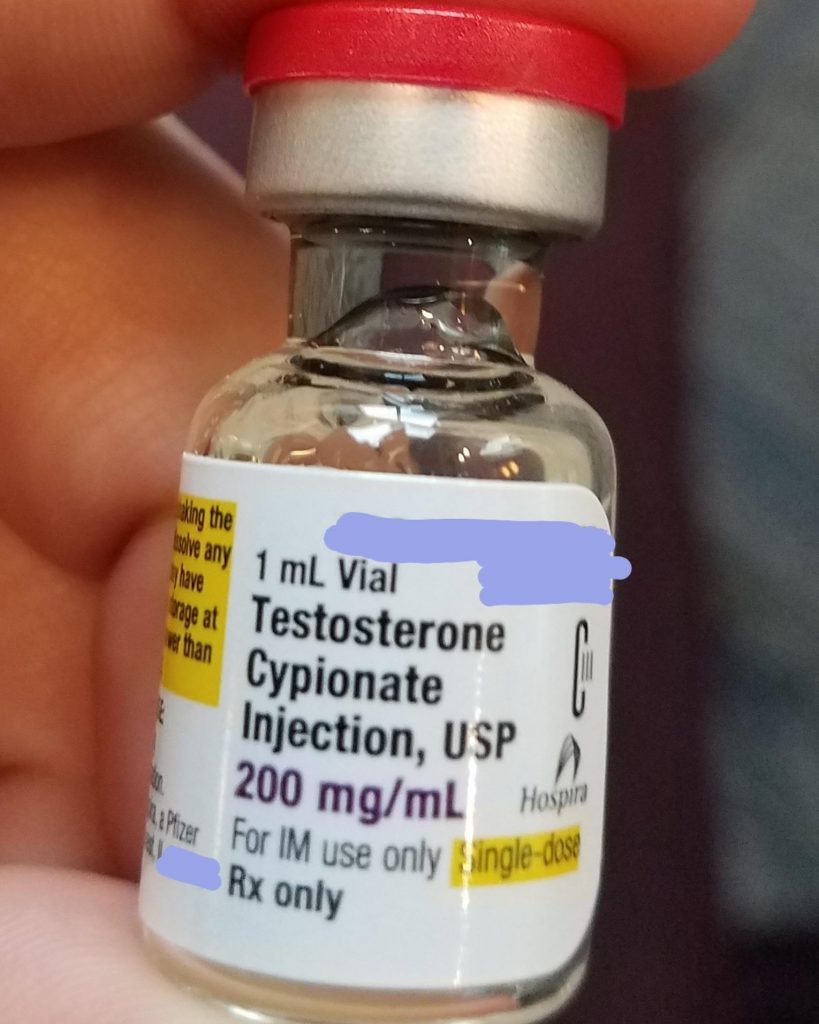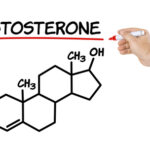How To Inject Testosterone

Testosterone, more commonly referred to as a “male” hormone, is a male steroid hormone that does a lot more for men than just promote a healthy sex drive. The hormone affects several other factors in your health, including body fat, muscle mass, bone density, red blood cell count, and mood.
Normal testosterone levels are between 300 and 1,000 ng/dL. If a blood test shows that your levels are far below the norm, your doctor may suggest testosterone injections. These are forms of treatment called testosterone replacement therapy.
Testosterone cypionate (Depo-Testosterone), testosterone enanthate (Xyosted, available generically), testosterone undecanoate (Aveed), and testosterone pellet (Testopel) are forms of testosterone injection used to treat symptoms of low testosterone in men who have hypogonadism (a condition in which the body does not produce enough natural testosterone). Testosterone is used only for men with low testosterone levels caused by certain medical conditions, including disorders of the testicles, pituitary gland (a small gland in the brain), or hypothalamus (a part of the brain) that cause hypogonadism. Your doctor will order certain lab tests to check your testosterone levels to see if they are low before you begin to use testosterone injection. Testosterone enanthate (available generically) and testosterone pellet (Testopel) are also used to stimulate puberty in males with delayed puberty. Testosterone enanthate (available generically) injection may be used in certain women with a type of breast cancer called mammary cancer that has spread to other parts of the body.
Testosterone should not be used to treat the symptoms of low testosterone in men who have low testosterone due to aging (‘age-related hypogonadism’). Testosterone is in a class of medications called androgenic hormones. Testosterone is a hormone produced by the body that contributes to the growth, development, and functioning of the male sexual organs and typical male characteristics. Testosterone injection works by supplying synthetic testosterone to replace the testosterone that is normally produced naturally in the body. When used to treat breast cancer, testosterone works by stopping the release of estrogen.

How To Inject Testosterone
Testosterone cypionate, testosterone enanthate (available generically), and testosterone undecanoate injection come as a solution (liquid) to be injected into a muscle and as a pellet to be injected under the skin by a doctor or nurse in an office setting or clinic. Testosterone enanthate injection (Xyosted) comes as a solution (liquid) to be injected subcutaneously (under the skin) once a week by yourself or a caregiver.
Testosterone injection may control your symptoms but will not cure your condition. Your doctor may adjust your dose of testosterone depending on the amount of testosterone in your blood during your treatment and your reaction to the medication.
Always look at your testosterone enanthate (Xyosted) solution before you inject it. It should be clear to light yellow in color and free of visible particles. Do not use it if it is cloudy, contains visible particles, or if the expiration date on the package has passed.
You can inject testosterone enanthate injection (Xyosted) in the left or right side of your abdomen (stomach) except your navel and the area 2 inches around it. Do not inject into an area where the skin is tender, bruised, red, or hard or where you have scars, tattoos, or stretch marks.
Your healthcare provider will show you how to use testosterone enanthate injection (Xyosted). Be sure that you understand these directions, and ask your healthcare provider if you have any questions.
Ask your pharmacist or doctor for a copy of the manufacturer’s information for the patient.
Are Testosterone injections safe?
Testosterone injections may be safe for many people when they follow a doctor’s instructions. However, research has also linked testosterone therapy with several side effects and possible complications.
Possible negative effects of testosterone therapy may include:
• an increased risk of cardiovascular complications
• worsened symptoms in the lower urinary tract
• polycythemia, a rare type of blood cancer
• an increased risk of venous thrombosis
Some people may have an allergic reaction to testosterone injections. For example, testosterone undecanoate may cause a serious allergic reaction or breathing issues following the injection. Symptoms can include breathing problems, dizziness, and skin rashes.
Other forms of testosterone, including testosterone enanthate, may increase blood pressure, which can raise the risk of a stroke or heart attack.
People who have had strokes, heart attacks, heart disease, or high blood pressure should make the doctor aware of this before starting testosterone injections, as they may have a higher risk of complications.
If someone experiences any of the following symptoms after a testosterone injection, they should seek emergency medical attention:
- shortness of breath
- slow or difficult speech
- chest pain
- weakness or numbness in an arm or leg
- pain in the arms, neck, back, or jaw
- dizziness
- faintness
If a doctor prescribes male testosterone injections to an adolescent to treat a constitutional delay of growth and puberty, the goal will be to achieve an accelerated growth spurt during puberty. This therapy should not affect the final adult height that the adolescent reaches.
What should I watch for while using this medicine?
Visit your doctor or health care professional for regular checks on your progress. They will need to check the level of testosterone in your blood.
This medicine is only approved for use in men who have low levels of testosterone related to certain medical conditions. Heart attacks and strokes have been reported with the use of this medicine. Notify your doctor or health care professional and seek emergency treatment if you develop breathing problems; vision changes; confusion; chest pain or chest tightness; sudden arm pain; severe, sudden headache; trouble speaking or understanding; sudden numbness or weakness of the face, arm or leg; loss of balance or coordination. Talk to your doctor about the risks and benefits of this medicine.
This medicine may affect blood sugar levels. If you have diabetes, check with your doctor or health care professional before you change your diet or the dose of your diabetic medicine.
Testosterone injections are not commonly used in women. Women should inform their doctor if they wish to become pregnant or think they might be pregnant. There is a potential for serious side effects on unborn children. Talk to your health care professional or pharmacist for more information. Talk with your doctor or health care professional about your birth control options while taking this medicine.
This drug is banned from being used in athletes by most athletic organizations.
What side effects may I notice from receiving this medicine?
Side effects that you should report to your doctor or health care professional as soon as possible:
• allergic reactions like skin rash, itching or hives, swelling of the face, lips, or tongue
• breast enlargement
• breathing problems
• changes in emotions or moods
• deep or hoarse voice
• irregular menstrual periods
• signs and symptoms of liver injury like dark yellow or brown urine; general ill feeling or flu-like symptoms; light-colored stools; loss of appetite; nausea; right upper belly pain; unusually weak or tired; yellowing of the eyes or skin
• stomach pain
• swelling of the ankles, feet, hands
• too frequent erections
• trouble passing urine or change in the amount of urine
Side effects that usually do not require medical attention (report to your doctor or health care professional if they continue or are bothersome):
• acne
• change in sex drive or performance
• facial hair growth
• hair loss
• headache
This list may not describe all possible side effects. Call your doctor for medical advice about side effects. You may report side effects to FDA at 1-800-FDA-1088.





